Kansas To Expand Medicaid To 150,000 Under Bipartisan Deal
As many as 150,000 low-income Kansans stand to gain health coverage under a compromise plan to expand Medicaid that Gov. Laura Kelly (D) announced on Thursday.
If the state legislature passes the measure, Kansas would join 37 other states and the District of Columbia in broadening eligibility for the health care program to anyone earning up to 133% of the federal poverty level, which amounts to about $16,000 a year for a single person and $33,000 for a family of four.
Kansas had been one of 14 holdout states, as Kelly’s Republican predecessors Jeff Colyer and Sam Brownback opposed Medicaid expansion. But since defeating then-Kansas Secretary of State Kris Kobach in the 2018 gubernatorial election, Kelly has been negotiating with the state’s majority-Republican legislature over the policy. On Thursday, she jointly announced a deal with state Senate Majority Leader Jim Denning (R) to move ahead.
“This process is far from over, as there are still several critical steps to be taken by the Kansas Legislature,” Kelly said in a press release. “But today, Sen. Denning and I are proud to stand together to propose a bipartisan compromise that will expand Medicaid and lower health care costs for Kansas families.”
The 2010 Affordable Care Act called for a nationwide Medicaid expansion; a Supreme Court ruling two years later made it optional for states. Republican-led states mostly rejected the expansion at first, but states have gradually signed on to the program. The Affordable Care Act guarantees that the federal government will cover 90% of the costs associated with people who enroll in Medicaid under the expansion, while the states must finance the remainder.
Unlike recent bipartisan compromises on Medicaid in Virginia and other states, the Kelly-Denning plan is a straightforward expansion. The proposal would not, for example, make enrollees sign up for private health insurance plans via the Affordable Care Act’s exchanges, nor does it include work requirements. Beneficiaries would, however, be required to pay at least $25 a month in premiums. A new tax on hospitals would fund the expansion. Kelly previously estimated the expansion would cover 150,000 Kansans.
The plan also includes a measure designed to reduce costs for private health insurance purchased by individuals and families through the federal HealthCare.gov exchange or directly from insurance companies.
“My top priority is to lower the cost of health care for Kansans across the board. We want to give as many Kansans health care coverage as we can, in the Medicaid market and the non-Medicaid market,” Denning said in a press release.
A “reinsurance” program would compensate insurers whose policyholders had extraordinarily high expenses, with the goal of stopping insurers from passing along those high costs to other consumers in the form of premium increases. President Donald Trump’s administration has encouraged states to apply for federal approval of reinsurance plans and has already OKed them in 13 states, according to the Henry J. Kaiser Family Foundation.
Several other states are actively considering joining the Medicaid expansion. Legislation to open up the program to more poor adults is advancing through the Wyoming legislature. In addition, grassroots activists in Missouri and Oklahoma are working to put the question of expansion before voters in ballot initiatives this year. A similar effort in Florida fell short.
Medicaid expansion and the Affordable Care Act itself are still at risk, however. Trump and congressional Republicans remain committed to repealing the law and making significant additional cuts to Medicaid funding. In addition, a Trump-backed lawsuit brought by GOP state officials threatens to eliminate the entire law. Democratic state officials defending the Affordable Care Act have asked the Supreme Court to take up the case this year.
Also on HuffPost
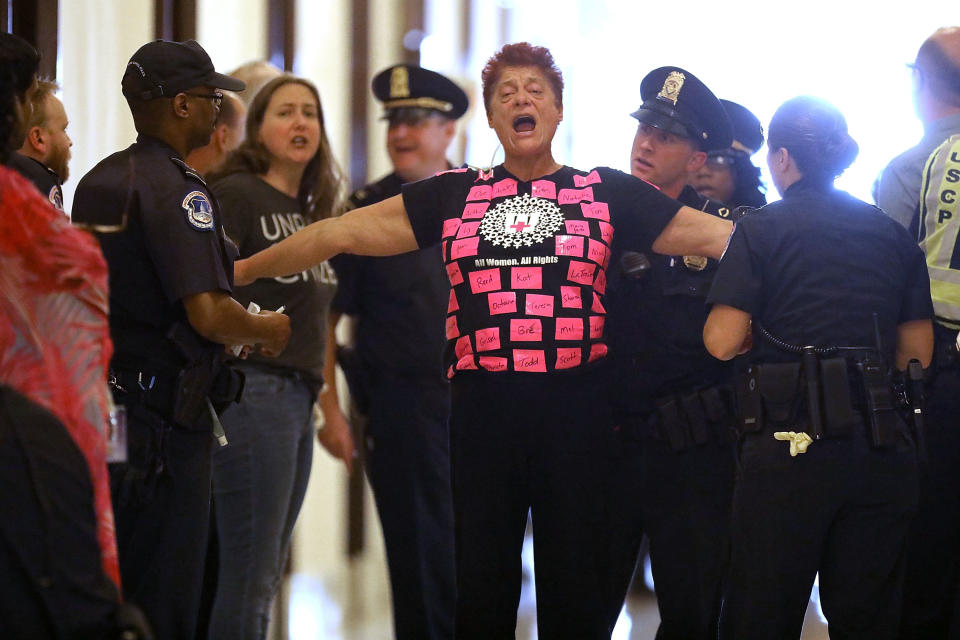
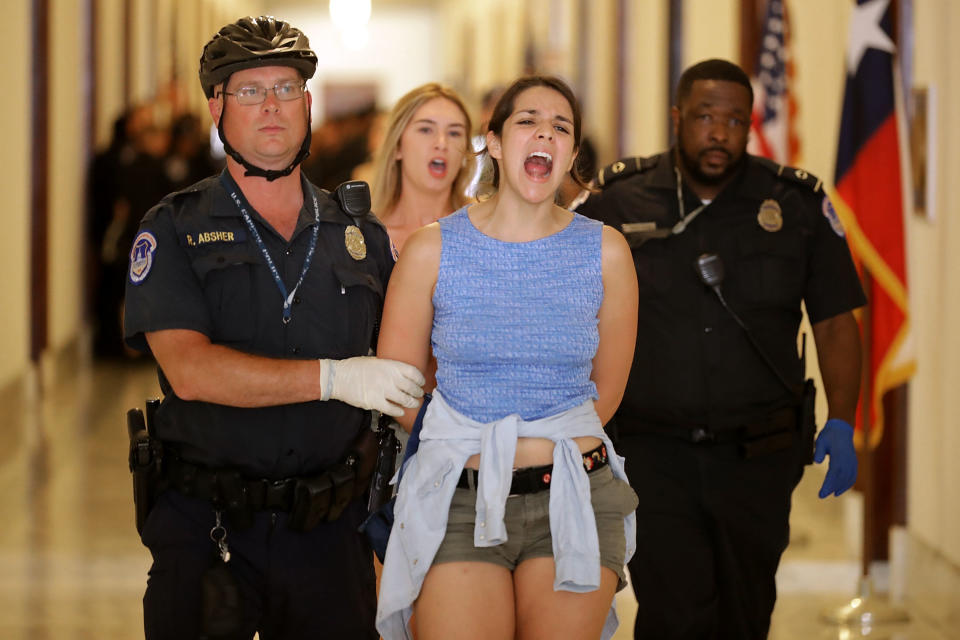
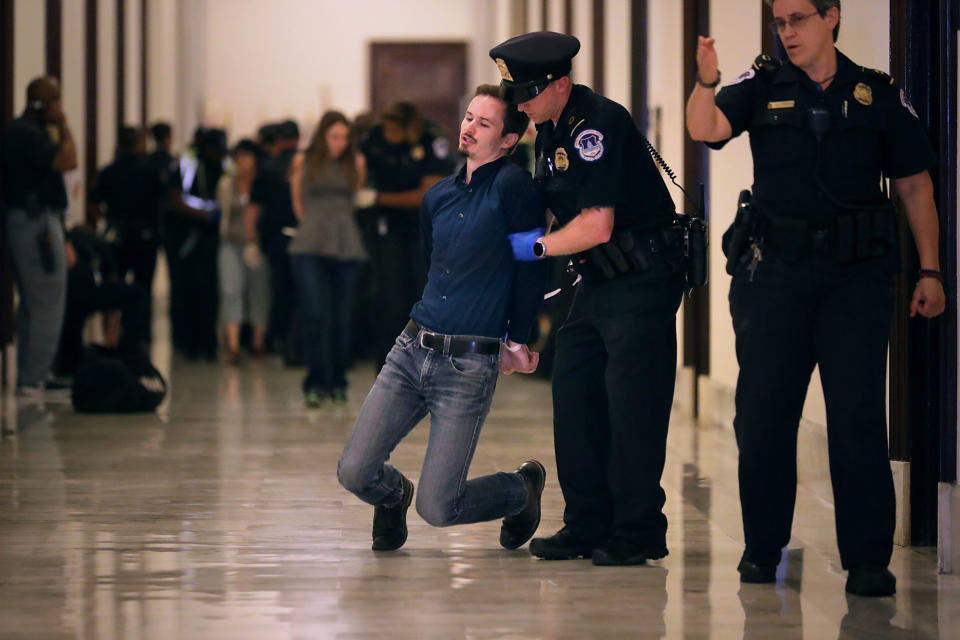
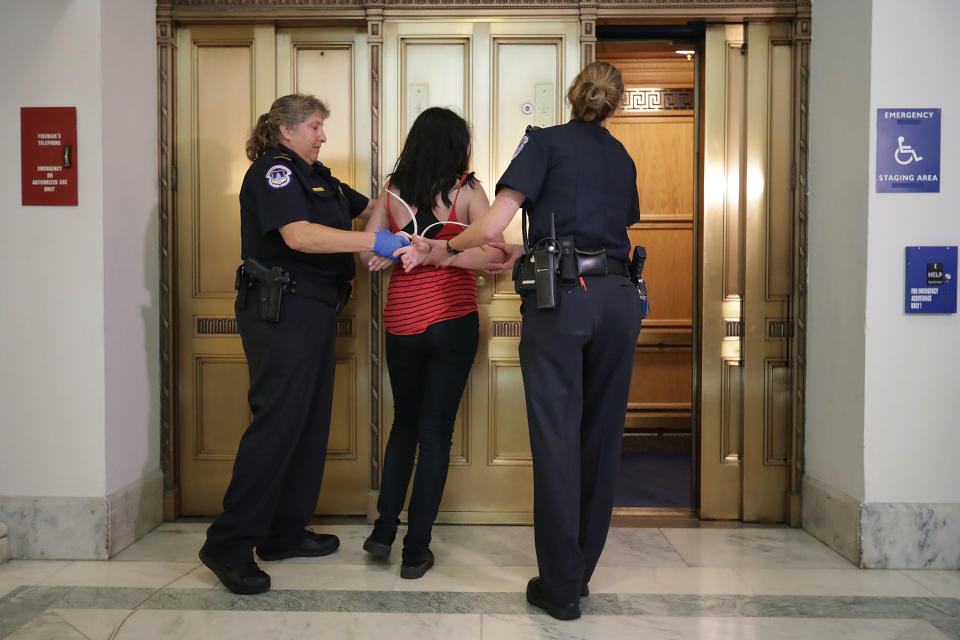
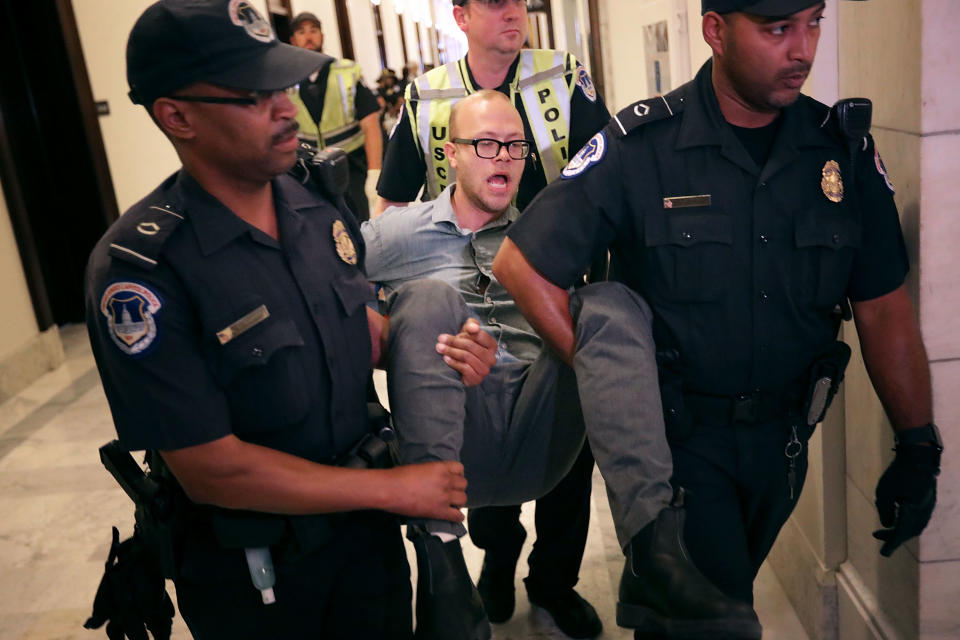
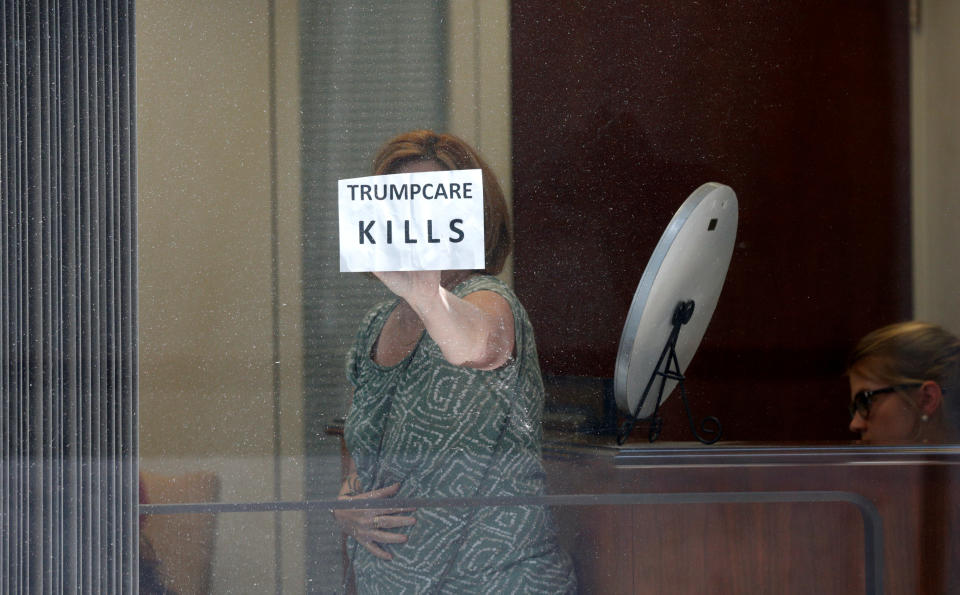
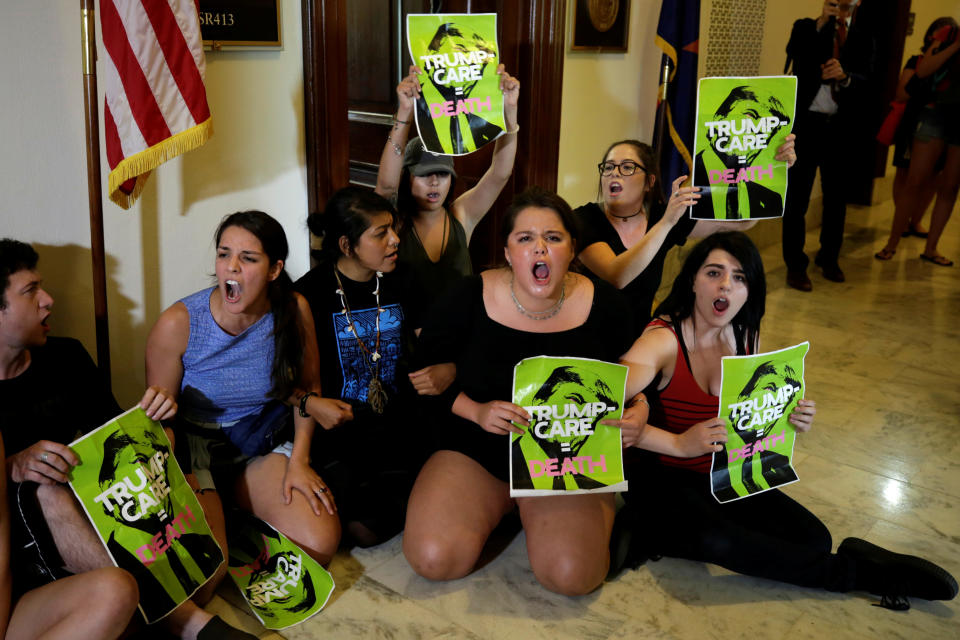
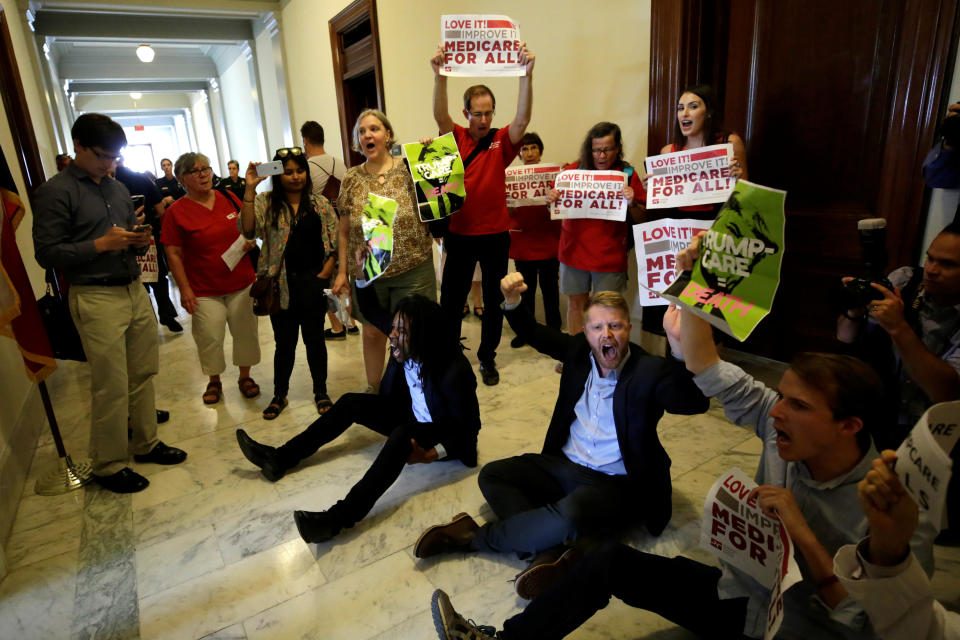
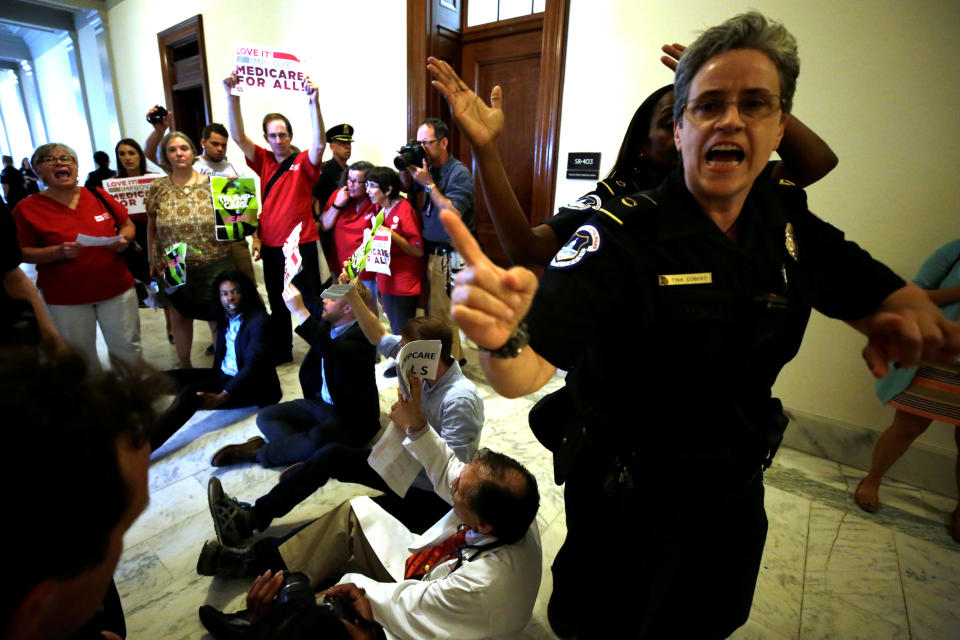
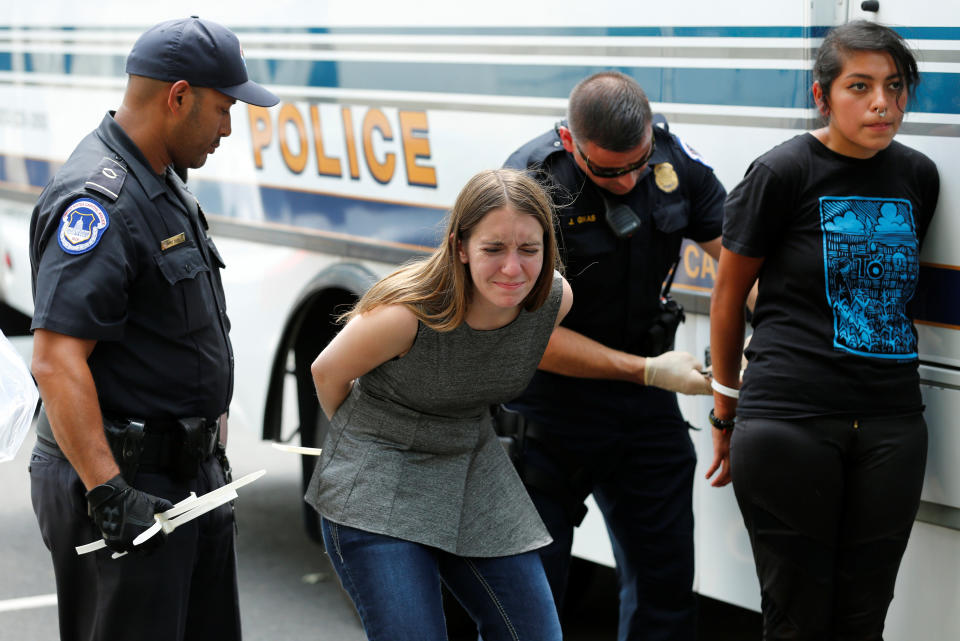
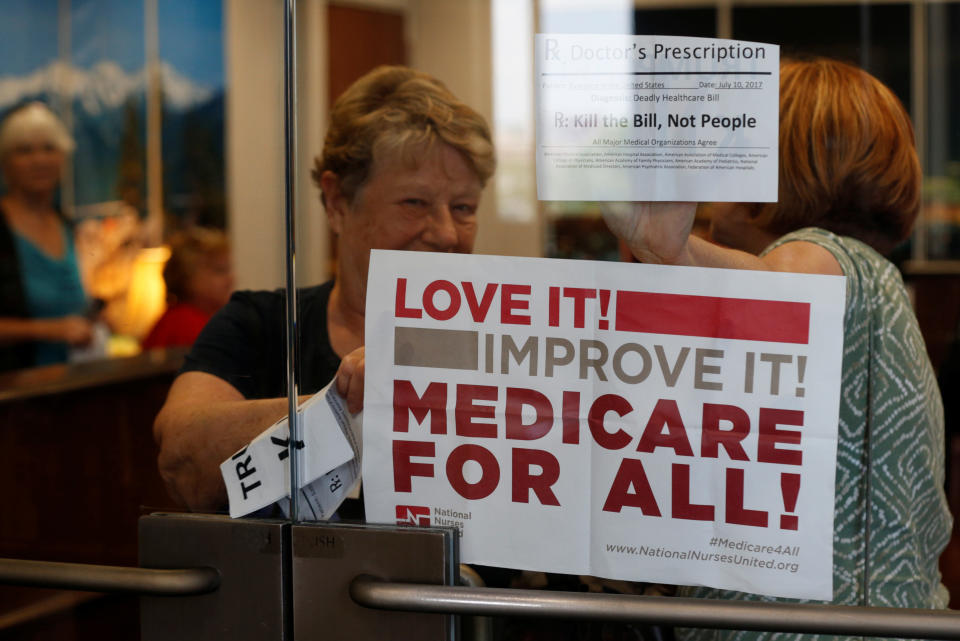
Love HuffPost? Become a founding member of HuffPost Plus today.
This article originally appeared on HuffPost.

